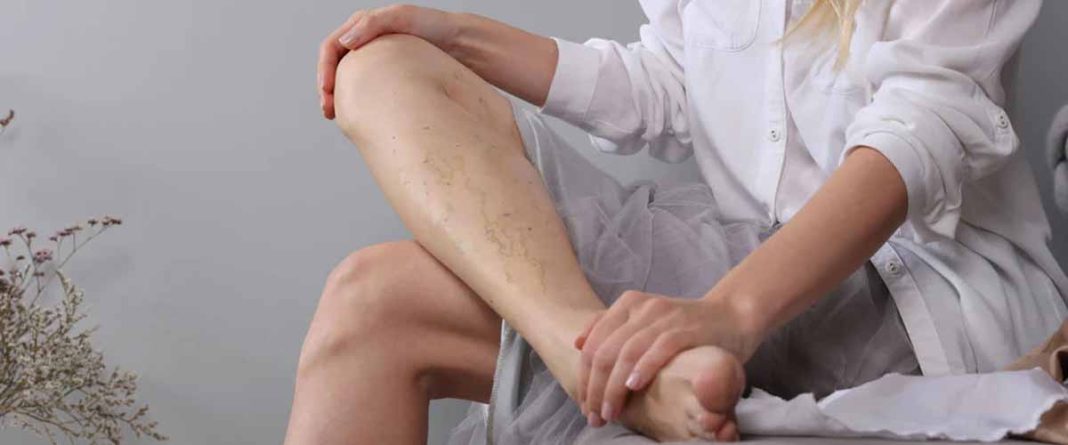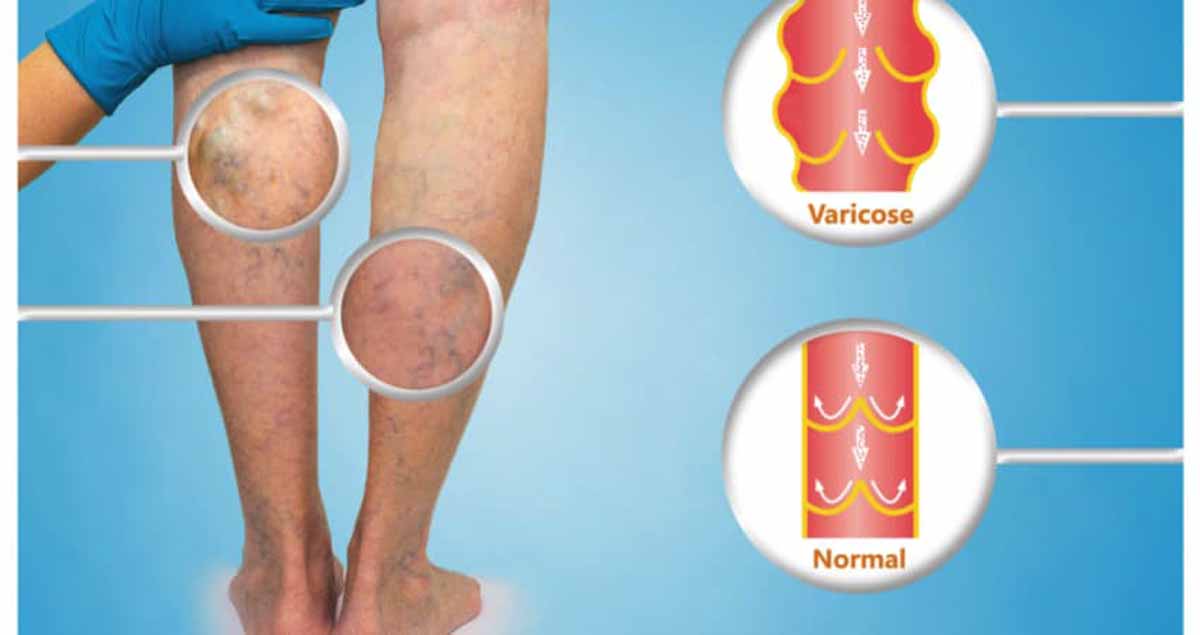Have you been experiencing discomfort in your legs? Do you notice swelling, itching, or pain in your ankles and feet? These symptoms could be an indication of vein problems.
Our veins are responsible for carrying blood from our extremities back to the heart. When they are not functioning properly, it can lead to a variety of issues.
Understanding Vein Problems
Our veins play an essential role in circulating blood from various parts of the body back to the heart. When veins fail to function properly, it can lead to conditions like varicose veins, spider veins, or chronic venous insufficiency.
These conditions arise when the valves in the veins, which prevent the backward flow of blood, become weak or damaged.
Common Causes of Vein Problems
Several factors contribute to vein issues. Here are some of the most common causes:
- Sedentary lifestyle: Lack of movement and prolonged sitting or standing can put excessive pressure on our veins, causing them to weaken.
- Genetics: Some people are genetically predisposed to vein problems, and if a close family member has had them, there is a higher chance you may develop them too.
- Hormonal changes: Fluctuations in hormones during pregnancy, menopause, or while taking birth control pills can increase the risk of developing vein problems.
- Obesity: Excess weight can put added pressure on the veins and lead to poor circulation.
- Age: As we get older, our veins become less elastic and lose their ability to pump blood effectively.
Recognizing Symptoms of Vein Disorders
Common symptoms of vein problems include visible swollen veins, throbbing or cramping in the legs, heaviness, and fatigue.
Skin discoloration and ulcers around the ankles can indicate severe venous issues. These symptoms often worsen after prolonged periods of standing or sitting.
Prevention Tips for Healthy Circulation
Maintaining healthy circulation involves a combination of lifestyle changes and preventive measures:
- Stay Active: Regular exercise is essential. Activities like walking, swimming, or cycling improve leg strength, circulation, and vein health.
- Maintain a Healthy Weight: Excess weight increases pressure on veins. Adopting a balanced diet rich in fruits, vegetables, and whole grains can help manage weight.
- Elevate Your Legs: Elevating legs above heart level for a few minutes several times a day can help improve circulation and reduce swelling.
- Avoid Prolonged Sitting or Standing: If your job requires sitting or standing for long periods, take breaks to move around. Flexing your legs and rotating your ankles can promote blood flow.
- Wear Compression Stockings: These stockings help compress the veins, improving blood flow and reducing swelling.
Treatment Options for Vein Problems
When lifestyle changes are insufficient, various medical treatments can help. Sclerotherapy, laser treatments, and vein stripping are some options to consider.
These treatments focus on closing or removing affected veins to improve circulation and appearance.
Lifestyle Changes to Prevent Vein Problems
Incorporating small changes into your daily routine can significantly reduce the risk of developing vein issues.
Ensuring a balanced diet with low sodium intake can prevent water retention and swelling. Staying hydrated is also crucial for maintaining healthy circulation.
 Recognizing Signs and When to Seek Help
Recognizing Signs and When to Seek Help
It’s essential to pay attention to symptoms that indicate worsening vein problems, such as persistent pain, swelling, or skin changes.
If you notice any of these signs, it might be time to consult a healthcare professional. A vein specialist in Tulsa can provide expert advice and tailor a treatment plan that suits your needs.
In conclusion, maintaining healthy circulation requires a proactive approach. By understanding the causes and symptoms of vein problems, adopting preventive measures, and knowing when to seek professional help, you can ensure healthier veins and better quality of life.
Regular check-ups with a healthcare provider can also help monitor vein health and prevent complications.


 Recognizing Signs and When to Seek Help
Recognizing Signs and When to Seek Help